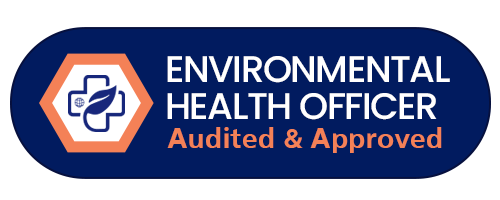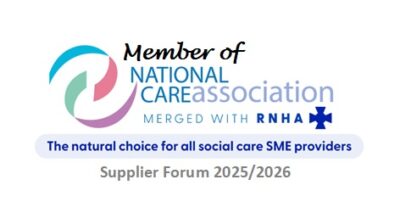Care Certificate Answers For Social Care
Care Certificate Answers For Social Care
Should someone working in children’s social care complete the Care Certificate?
No. Those working within children’s social care are regulated by the Department for Education (DfE). The Dfe had no involvement in the creation of the Care Certificate and therefore do not promote its use.
Are individuals working in ancillary support roles and other non-care workers within adult social care required to complete the Care Certificate?
The Care Certificate was not designed to be completed by everyone working in an adult social care organisation. Roles such as administrators, receptionists, porters, chefs, kitchen staff, drivers, cleaners and financial staff are not required to complete the Care Certificate.
However, if an employed thinks that these workers would benefit from some of the content covered in the Care Certificate, for example, the Standards around safeguarding Adults and children, then they can choose to include this as part of their induction programme.
Should a volunteer complete the Care Certificate?
This varies depending on the volunteer’s roles and previous experience. If an individual is carrying out a limited role with minor duties they only need to complete the standards that are relevant to their duties. However, if they are undertaking a role where the duties and tasks are the same as any other health care worker they must fully complete the Care Certificate. It should also be noted that any volunteer should undergo a basic induction.
When recruiting for health support and adult social care roles, should we always look for someone who has completed the Care Certificate?
The Care Certificate was not established until 01 April 2015, therefore someone working within health support and adult social care before this date may not have completed the Care certificate. However, they should have evidence of alternative training and qualifications they have undertaken that meet the fifteen standards. It is the duty of the employer to ensure all their staff have undergone sufficient training and are competent in conducting their roles.
How does a domiciliary care agency assess the competence of new workers in the health sector?
Regulated healthcare providers are required to review the competence of all new care workers before they are given the responsibility of providing care to someone without the supervision of a more experienced colleague. This is an incredibly important part of their induction and accessors should be provided with the necessary time to make the assessment and judge a workers level of competency.
There are parts of the Care Certificate, such as the workplace assessments that are just as important for individuals working in the community and homecare to undertake as any other health support and adult social care workers.
How do organisations such as Shared Lives and other live-in care services ensure competence amongst those new to the health sector?
Providers regulated by the Care Quality Commission (CQC) will require all first time workers in the health sector to complete the Care Certificate and must provide them with the necessary training, support and workplace assessments needed to do so. This should be included as part of the employee induction programme.
For service providers where care roles may be limited to particular duties, the employer should ensure that the workers gain the knowledge and complete assessments for all the Standards relevant to the role. If this is the case the employer must document which parts of the Care Certificate have been completed.
Who should sign the Care Certificate in a Care Quality Commission (CQC) regulated adult care provider in the absence of a regional manager?
In these circumstances, we suggest that the employer undertaking the Care Certificate should have it signed by the next most senior staff member, depending on the organisation this could be a senior nurse, manager, head care worker or anyone else in a senior position.
When having the Care Certificate signed it is a good idea to provide a document alongside it stating why it has not to be signed by the regional manager and requesting that when a regional manager is present they counter-sign the certificate.
What advice would you give to a health or adult social care worker who believes their induction training was not adequate in meeting the Care Certificate Standards?
Most employers want to ensure their staff are competent and are happy to provide support to ensure they have the necessary skills to carry out the role. If a worker is concerned that the training and assessments they have been provided do not meet the Standards they should express this to their line manager.
If an individual is worried about the level of training provided to staff working for an adult health care provider and have serious safety concerns, they can contact the Care Quality Commission (CQC) if the employer is regulated. If not, they should contact their local authority.
Should inductions for new workers be focused purely on the Care Certificate?
No. All new employees should receive a full induction that introduces them to their role as well as the organisation and its specific procedures. Employers should provide full training, support and guidance to ensure workers can carry out their role competently.
The Care Certificate is the minimum someone working within adult health and social care is expected to achieve. In cases where the duties of a workers role fall outside of the Standards covered in the Care Certificate, employers are expected to provide the necessary training and assessments.
Should an employer recruit someone with previous experience in adult health and social care, it is their responsibility to adjust the induction plan where appropriate. It has been shown that a strong induction can help build trust and result in increased productivity and retention rates amongst workers.
What should be considered when recruiting an external learning provider to assist in the delivery of the Care Certificate?
The adult social care provider is always responsible for the quality of training provided during an induction, regardless of whether or not it was delivered by an external party. A Care Quality Commission (CQC) regulated care provider is expected to deliver the Care Certificate internally or at the very least recruit a high-quality third party learning provider. Not doing this would severely impact the quality of the care service provided and breach the CQC Fundamental Standards of Quality and Safety.
Should an adult care service choose to bring in an external learning provider to deliver parts of the Care Certificate, they should evaluate their ability to effectively train care staff and meet the requirements of the Care Certificate. It is also advised that training materials and qualifications of those delivering the training to be reviewed beforehand.








